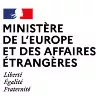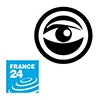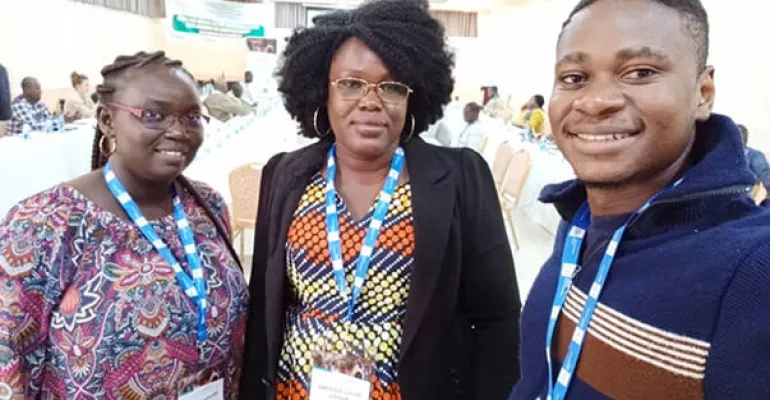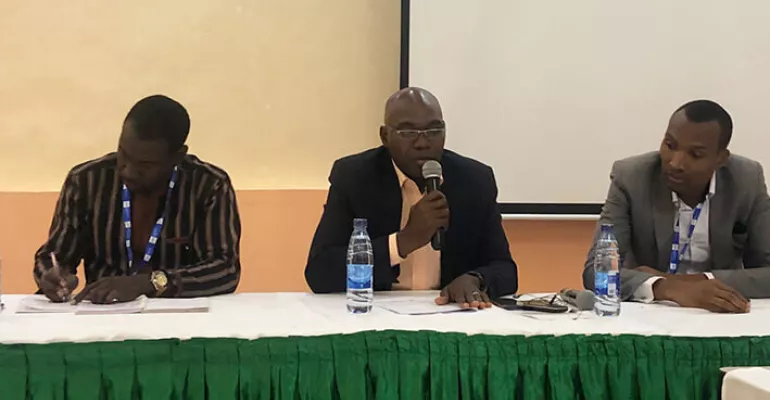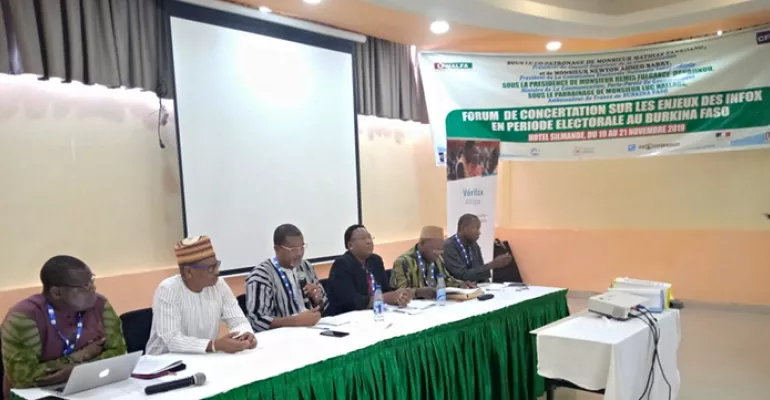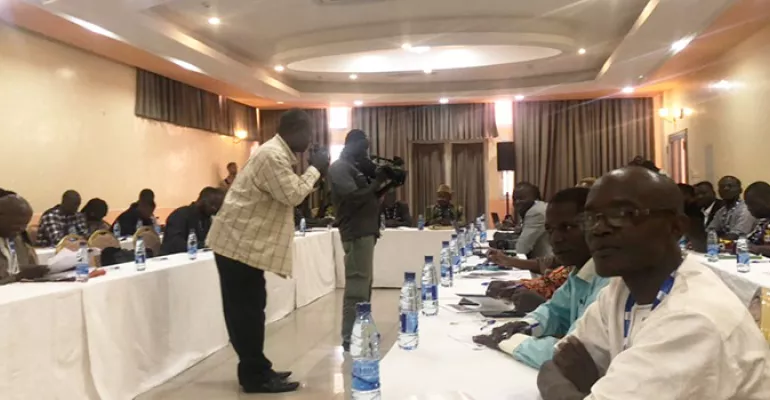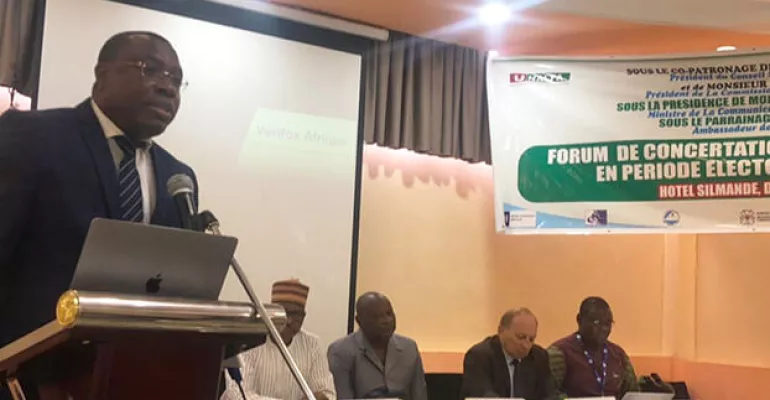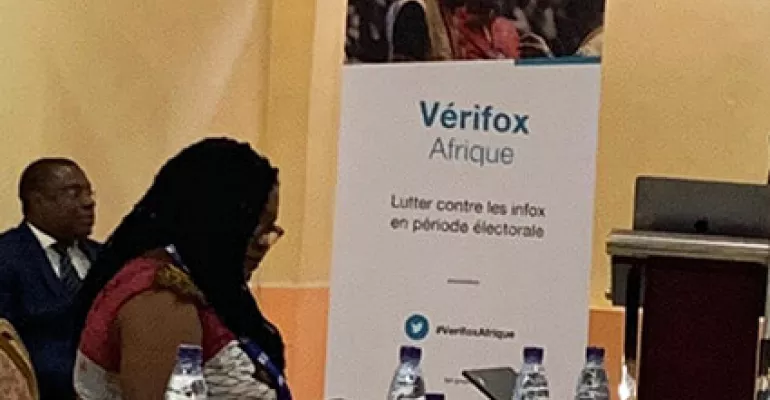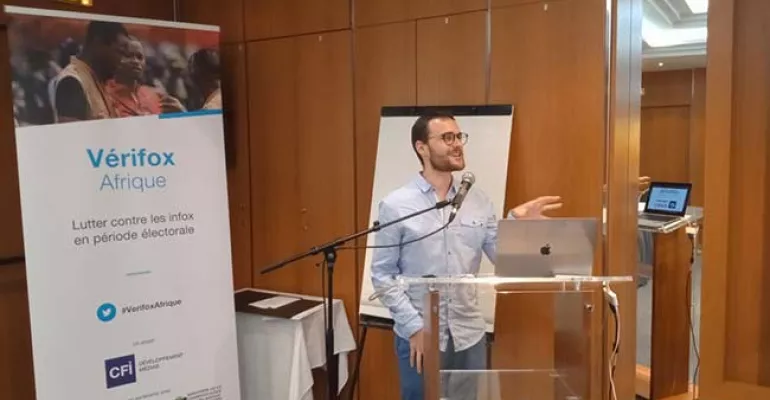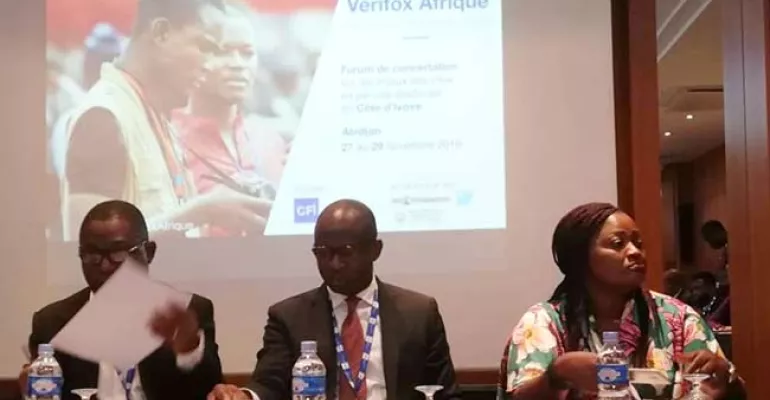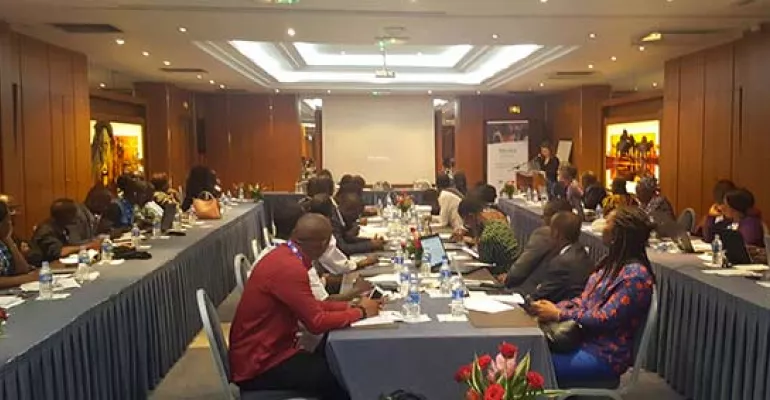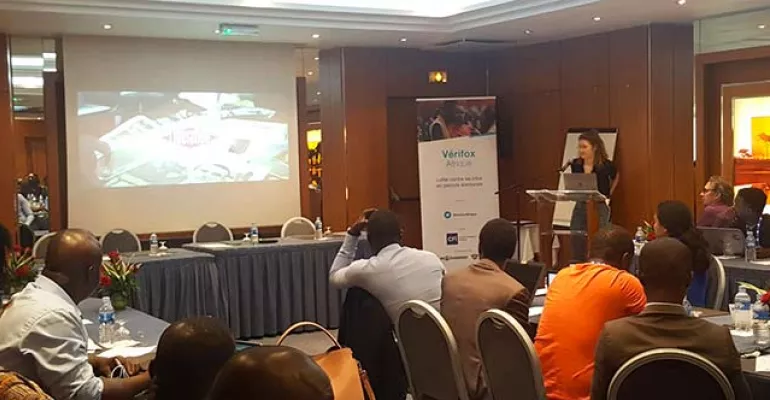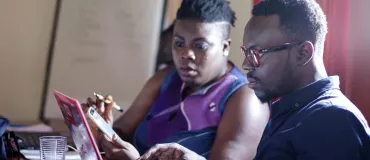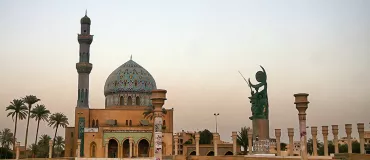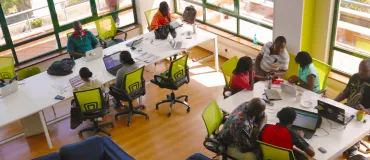Verifox Africa
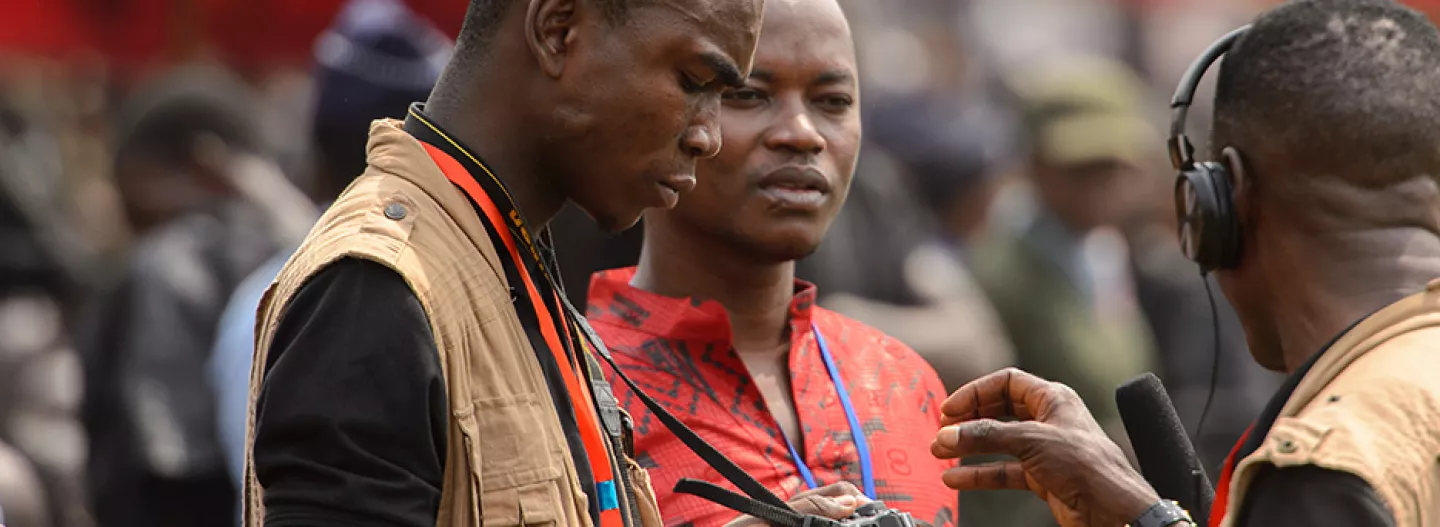
Presentation
Rumours and information tampering are nothing new, but the Internet has accelerated the rate at which this misinformation has been spread in recent years, reaching more people as a result. The fact that content producers and distributors are no longer necessarily trained journalists bound by a code of ethics is a factor leading to the rise of "fake news".
While access to diverse forms of reliable and independent information is synonymous with sustained rule of law, mass dissemination of fake news can be a destabilising factor in democracies. Therefore, it is critical that the media and players within civil society avoid the pitfalls created by misinformation by promoting dialogue with stakeholders (political authorities, bloggers, the general population).
The Verifying Fake News in Africa project is a response to the need for African media to be better equipped to combat the spread of fake news in the three countries of Benin, Burkina Faso and Côte d'Ivoire, particularly when elections are being held. The project is being conducted in partnership with The France 24 Observers.
Project beneficiaries
- (general,political) journalists and community managers of traditional media and pure players;
- media managers;
- national regulatory authority and ministry representatives tasked with communication and information;
- civil society representatives (CSOs actively promoting citizenship and/or election monitoring that are online and on social networks, journalists' association, bloggers' association);
- influencers, bloggers and activists.
Files to download
Actions
National forums to raise awareness of the issues encountered when combating fake news during election season
Three collaborative forums reflecting on the topic of fake news, for launching the project in each country.
Forum addressing the challenges posed by fake news in Burkina Faso
Discussing fake news at the Night of Ideas in Ouagadougou
Journalist training
- Fundamental principles of journalism during election season:
- ethics, integrity and responsibility of journalists;
- administrative, legal and regulatory electoral framework;
- checking sources and how to fact-check;
- the role of editorial staff;
- how to tackle an electoral campaign;
- political interview techniques;
- participation of women in elections. - Detecting and deconstructing fake news online and on social networks:
- verification techniques, creating content to deconstruct fake news;
- using social networks to share fact-checked news during election season. - Creating an e-learning module on the topic of combating fake news

